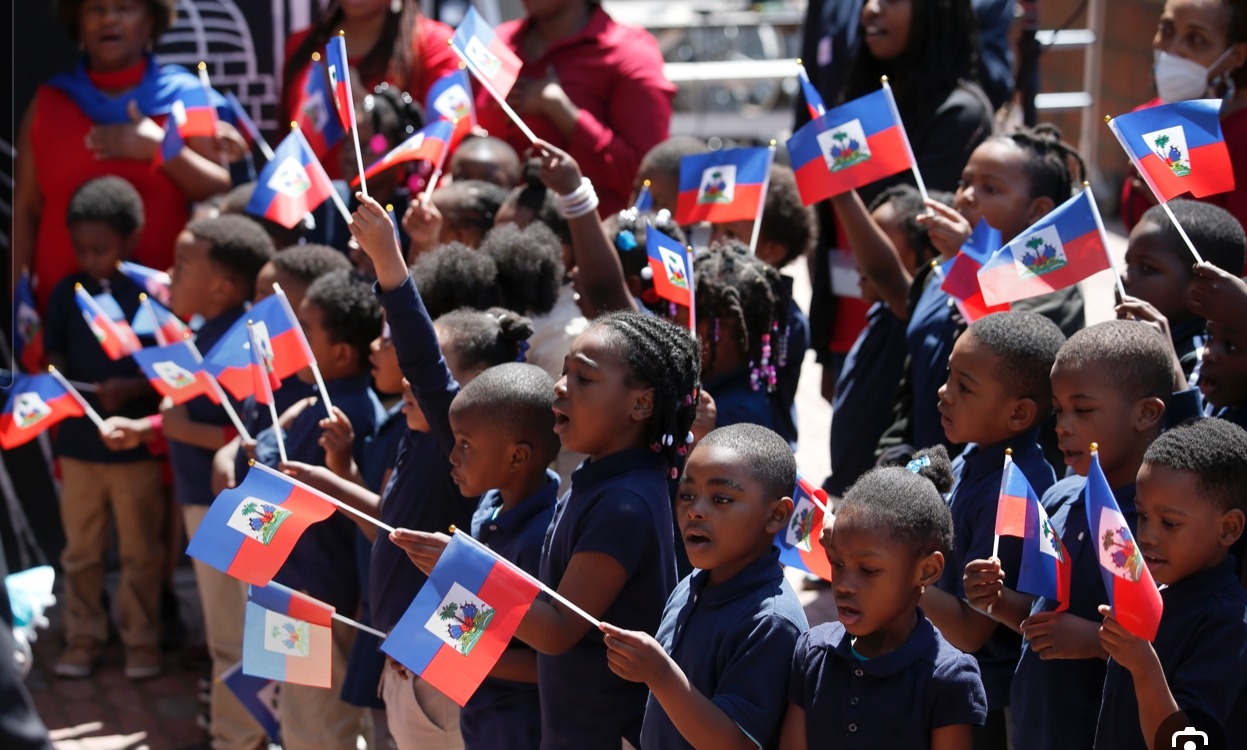
Haitian Creole is a vibrant language spoken by millions in Haiti and the Haitian diaspora. Did you know it's a blend of French, African languages, Spanish, and Taíno? This unique mix gives it a rich cultural tapestry. Why is Haitian Creole important? It's not just a means of communication; it represents the resilience and history of the Haitian people. Want to learn more? From its origins in the 17th century to its role in modern Haiti, we've gathered 26 fascinating facts about this incredible language. Ready to dive in? Let's explore the world of Haitian Creole and uncover its many layers.
What is Haitian Creole?
Haitian Creole, often called Kreyòl, is a vibrant language spoken by millions in Haiti. It blends French with African languages, Spanish, and indigenous Taíno influences. Let's dive into some fascinating facts about this unique language.
- Haitian Creole is one of Haiti's two official languages, alongside French.
- Over 10 million people speak Haitian Creole worldwide.
- The language emerged during the 17th and 18th centuries among enslaved Africans in Haiti.
- It is primarily based on French, with about 90% of its vocabulary derived from French.
- Despite its French roots, Haitian Creole has a distinct grammar and pronunciation.
The Evolution of Haitian Creole
Understanding the evolution of Haitian Creole gives insight into its rich history and cultural significance. Here are some key points about its development.
- Haitian Creole evolved as a means of communication among enslaved Africans from different ethnic groups.
- The language incorporates elements from West African languages, such as Fon, Ewe, and Yoruba.
- Spanish and Portuguese also influenced Haitian Creole due to early colonial interactions.
- Indigenous Taíno words are present in Haitian Creole, reflecting the island's original inhabitants.
- The language has evolved over centuries, adapting to social and political changes in Haiti.
Haitian Creole in Education and Literature
Haitian Creole plays a crucial role in education and literature in Haiti. Here are some interesting facts about its use in these fields.
- In 1987, Haiti's constitution recognized Haitian Creole as an official language, promoting its use in education.
- Many schools in Haiti now teach in Haitian Creole to improve literacy rates.
- Haitian Creole literature has a rich tradition, with notable authors like Frankétienne and Georges Castera.
- The language is used in newspapers, radio, and television, making it accessible to a broad audience.
- Haitian Creole is also used in religious texts, including the Bible, which has been translated into Kreyòl.
Cultural Significance of Haitian Creole
Haitian Creole is more than just a language; it is a vital part of Haitian culture and identity. Here are some facts highlighting its cultural importance.
- Haitian Creole is the primary language of communication in daily life for most Haitians.
- It is used in music, including popular genres like Kompa and Rara.
- Haitian Creole proverbs and sayings reflect the wisdom and experiences of the Haitian people.
- The language is celebrated during International Creole Day on October 28th.
- Haitian Creole is a symbol of national pride and resistance against colonial oppression.
Haitian Creole in the Diaspora
Haitian Creole extends beyond Haiti's borders, influencing communities worldwide. Here are some facts about its presence in the diaspora.
- Significant Haitian Creole-speaking communities exist in the United States, Canada, France, and the Dominican Republic.
- In the U.S., cities like Miami, New York, and Boston have large Haitian Creole-speaking populations.
- Haitian Creole is taught in some American universities, reflecting its growing recognition.
- The language helps maintain cultural ties among Haitian diaspora communities.
- Haitian Creole media, such as radio stations and online platforms, serve the diaspora, keeping them connected to their roots.
The Future of Haitian Creole
The future of Haitian Creole looks promising as efforts continue to promote and preserve the language. Here are some final thoughts on its future.
- Technological advancements, like language apps and online courses, are making Haitian Creole more accessible to learners worldwide.
Final Thoughts on Haitian Creole
Haitian Creole is more than just a language; it's a vibrant tapestry of history, culture, and resilience. Spoken by millions, it reflects the rich heritage of Haiti's people. From its roots in African languages and French to its unique grammar and vocabulary, Haitian Creole stands as a testament to the nation's enduring spirit. Understanding these 26 facts not only broadens our knowledge but also deepens our appreciation for this remarkable language. Whether you're a linguist, a traveler, or simply curious, Haitian Creole offers a fascinating glimpse into the heart of Haiti. Embrace these insights, and you'll find yourself more connected to the stories and lives of those who speak it every day. Keep exploring, and let the beauty of Haitian Creole inspire you.
Was this page helpful?
Our commitment to delivering trustworthy and engaging content is at the heart of what we do. Each fact on our site is contributed by real users like you, bringing a wealth of diverse insights and information. To ensure the highest standards of accuracy and reliability, our dedicated editors meticulously review each submission. This process guarantees that the facts we share are not only fascinating but also credible. Trust in our commitment to quality and authenticity as you explore and learn with us.


